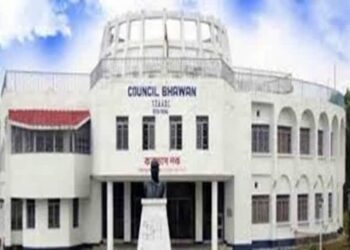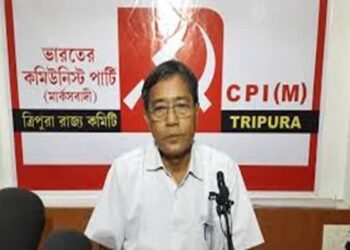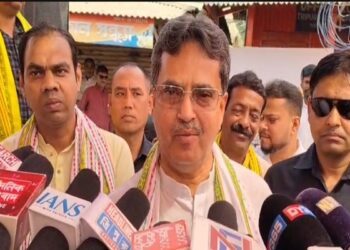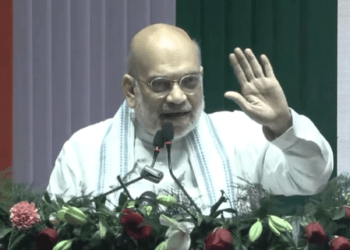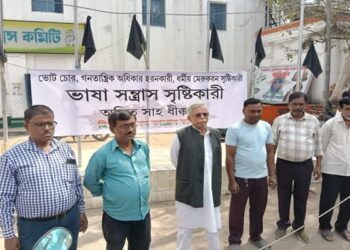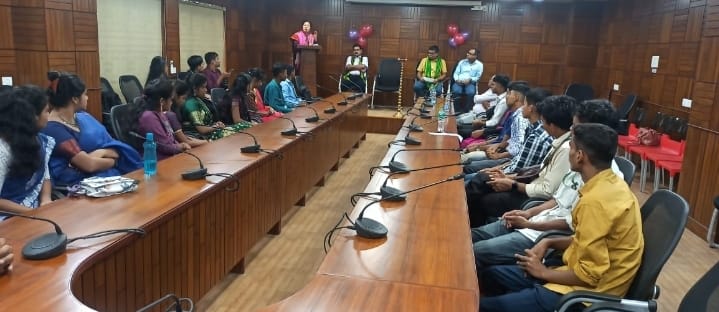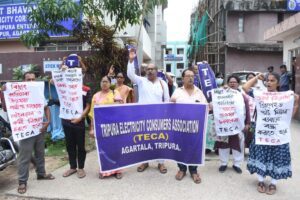 The Tripura Electric Consumers Association recently organised a protest in front of Agartala’s Bhutoria Vidyut Bhavan, highlighting significant issues related to prepaid metres, increased electricity bills, and service inefficiencies. The protest underscored the frustration of consumers facing challenges due to unreliable electric services. Core issues included the installation of new prepaid metres in every household, inconsistencies in tariff collection, frequent load shedding, and slow response to power outages, especially during adverse weather conditions. Additionally, the controversial collection of Rs 5,000 as an advance payment without proper receipts raised concerns about transparency. The authorities have set up call centres for complaint registration; however, the service level remains subpar compared to global standards. In many developed countries, smart metres, transparent billing practices, and efficient service delivery are standard. For instance, countries like Germany and the United States ensure detailed breakdowns of electricity usage and swift responses to outages. The consumer forum expressed grief over the prevailing situation, emphasising the need for immediate corrective measures. Suggestions for improvement include the adoption of international best practices, such as implementing advanced smart metre technology to provide real-time data on energy consumption and facilitate accurate billing. Smart metres would help in monitoring energy usage patterns, allowing consumers to manage their consumption better and reduce costs. Transparent billing practices should be enforced to avoid discrepancies and build consumer trust. The call centres, while a step in the right direction, must be upgraded to enhance their efficiency. Employing trained personnel who can handle complaints promptly and effectively would go a long way towards improving service delivery. Additionally, a robust feedback mechanism should be established to assess consumer satisfaction and address grievances systematically. Comparing this with the model of free electricity for households consuming up to 200 units per month in Delhi, which offers significant relief to low-income families, it is evident that such initiatives promote energy conservation through efficient service delivery and transparent billing. Tripura could consider implementing similar schemes to support vulnerable sections of society while encouraging responsible energy usage. Moreover, the government must invest in modern infrastructure to ensure a reliable electricity supply. Upgrading the grid to withstand adverse weather conditions and prevent frequent power outages is crucial. Regular maintenance and timely repairs should be prioritised to minimise downtime and enhance service reliability. The controversial advance payment policy needs re-evaluation to ensure fairness and transparency. Consumers should be provided with proper receipts and clear explanations of the charges to avoid confusion and mistrust. Introducing flexible payment options could also ease the financial burden on consumers. The consumer forum’s grief reflects a broader dissatisfaction with the current state of electric services in Tripura. To address these issues, the government should consider forming a task force comprising representatives from the consumer association, utility providers, and independent experts to develop and implement a comprehensive action plan. This task force could oversee the implementation of smart metre technology, the improvement of service delivery standards, and the introduction of transparent billing practices. Additionally, public awareness campaigns should be conducted to educate consumers about their rights and the available complaint redressal mechanisms. Empowering consumers with knowledge about efficient energy usage and conservation techniques can lead to more sustainable consumption patterns. As the world moves towards more efficient and consumer-centric electric services, Tripura must take proactive measures to bridge the gap and meet the expectations of its consumers. The government’s commitment to systemic reforms is crucial to building a sustainable and reliable electric service framework for the future. By embracing international best practices, investing in modern infrastructure, and ensuring transparent and fair billing practices, Tripura can enhance the quality of its electric services and build consumer trust. Implementing these suggestions would not only address the current grievances but also pave the way for a more resilient and consumer-friendly electric service landscape in Tripura.
The Tripura Electric Consumers Association recently organised a protest in front of Agartala’s Bhutoria Vidyut Bhavan, highlighting significant issues related to prepaid metres, increased electricity bills, and service inefficiencies. The protest underscored the frustration of consumers facing challenges due to unreliable electric services. Core issues included the installation of new prepaid metres in every household, inconsistencies in tariff collection, frequent load shedding, and slow response to power outages, especially during adverse weather conditions. Additionally, the controversial collection of Rs 5,000 as an advance payment without proper receipts raised concerns about transparency. The authorities have set up call centres for complaint registration; however, the service level remains subpar compared to global standards. In many developed countries, smart metres, transparent billing practices, and efficient service delivery are standard. For instance, countries like Germany and the United States ensure detailed breakdowns of electricity usage and swift responses to outages. The consumer forum expressed grief over the prevailing situation, emphasising the need for immediate corrective measures. Suggestions for improvement include the adoption of international best practices, such as implementing advanced smart metre technology to provide real-time data on energy consumption and facilitate accurate billing. Smart metres would help in monitoring energy usage patterns, allowing consumers to manage their consumption better and reduce costs. Transparent billing practices should be enforced to avoid discrepancies and build consumer trust. The call centres, while a step in the right direction, must be upgraded to enhance their efficiency. Employing trained personnel who can handle complaints promptly and effectively would go a long way towards improving service delivery. Additionally, a robust feedback mechanism should be established to assess consumer satisfaction and address grievances systematically. Comparing this with the model of free electricity for households consuming up to 200 units per month in Delhi, which offers significant relief to low-income families, it is evident that such initiatives promote energy conservation through efficient service delivery and transparent billing. Tripura could consider implementing similar schemes to support vulnerable sections of society while encouraging responsible energy usage. Moreover, the government must invest in modern infrastructure to ensure a reliable electricity supply. Upgrading the grid to withstand adverse weather conditions and prevent frequent power outages is crucial. Regular maintenance and timely repairs should be prioritised to minimise downtime and enhance service reliability. The controversial advance payment policy needs re-evaluation to ensure fairness and transparency. Consumers should be provided with proper receipts and clear explanations of the charges to avoid confusion and mistrust. Introducing flexible payment options could also ease the financial burden on consumers. The consumer forum’s grief reflects a broader dissatisfaction with the current state of electric services in Tripura. To address these issues, the government should consider forming a task force comprising representatives from the consumer association, utility providers, and independent experts to develop and implement a comprehensive action plan. This task force could oversee the implementation of smart metre technology, the improvement of service delivery standards, and the introduction of transparent billing practices. Additionally, public awareness campaigns should be conducted to educate consumers about their rights and the available complaint redressal mechanisms. Empowering consumers with knowledge about efficient energy usage and conservation techniques can lead to more sustainable consumption patterns. As the world moves towards more efficient and consumer-centric electric services, Tripura must take proactive measures to bridge the gap and meet the expectations of its consumers. The government’s commitment to systemic reforms is crucial to building a sustainable and reliable electric service framework for the future. By embracing international best practices, investing in modern infrastructure, and ensuring transparent and fair billing practices, Tripura can enhance the quality of its electric services and build consumer trust. Implementing these suggestions would not only address the current grievances but also pave the way for a more resilient and consumer-friendly electric service landscape in Tripura.
WATCH OUR NEWS VIDEO BY CLICKING ON THE YOUTUBE CHANNEL LINK GIVEN BELLOW :




